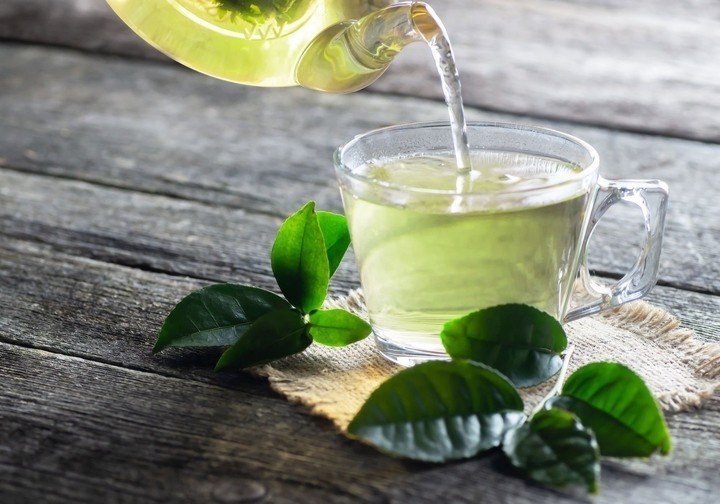
According to nutritionist Nguyen Thi Thuong (Department of Dietetics, Tam Anh General Hospital , Hanoi ), valuable antioxidants in green tea such as epicatechin (EC), gallic acid and EGCG can be destroyed if the tea is brewed with water that is too hot or steeped for too long.
The ideal temperature is around 70-80 degrees Celsius, the steeping time should only be 2-3 minutes to retain the flavor and nutrients, avoiding releasing too much tannin which makes the tea bitter, difficult to drink and causes stomach upset.
The time you drink tea also affects its effectiveness. About 30-60 minutes after breakfast is the ideal time to help you stay alert and increase your metabolism. The afternoon from 2-3pm is the right time to improve concentration.
However, drinking tea on an empty stomach can cause stomach pain and nausea because tannin stimulates acid secretion. This compound also reduces iron and protein absorption, causing constipation if used improperly.
Green tea contains caffeine – less than coffee, but enough to cause insomnia, rapid heartbeat, or restlessness in sensitive people. Caffeine can stay in the body for up to 6 hours, so avoid drinking it after 5pm.
Many people have the habit of adding sugar, milk or honey to tea to increase sweetness. However, this can be counterproductive. Fat and protein in milk reduce the antioxidant activity of tea. Sugar increases the risk of obesity, diabetes, and metabolic disorders if consumed regularly. In particular, adding honey to hot tea (over 50 degrees Celsius) will destroy beneficial enzymes, reducing the nutritional value of honey.
Despite its many benefits, green tea cannot replace water - an essential living environment for the body. Moreover, the amount of caffeine in tea can dehydrate the body if consumed in excess. Adults should only drink about 2-3 cups of tea per day (400-600 ml), balanced with individual health needs and physical condition.
Experts warn that catechins in tea can affect the metabolism of some drugs, reducing effectiveness or increasing side effects, especially with cardiovascular drugs, blood pressure drugs, and antidepressants.
Pregnant women, breastfeeding women, people with anemia or during menstruation should also limit drinking tea because caffeine and tannin reduce iron absorption, cause insomnia and affect the sleep of infants if the mother is breastfeeding.
Green tea is a good drink, but it needs to be used properly: brewed at the right temperature, drunk at the right time, avoid taking it with medicine or adding unnecessary additives. Drinking too much or abusing it instead of filtered water can both turn the benefits into harm.
Source: https://baolaocai.vn/thoi-diem-uong-tra-xanh-tot-nhat-trong-ngay-post648861.html



















































![[Maritime News] More than 80% of global container shipping capacity is in the hands of MSC and major shipping alliances](https://vphoto.vietnam.vn/thumb/402x226/vietnam/resource/IMAGE/2025/7/16/6b4d586c984b4cbf8c5680352b9eaeb0)













































Comment (0)